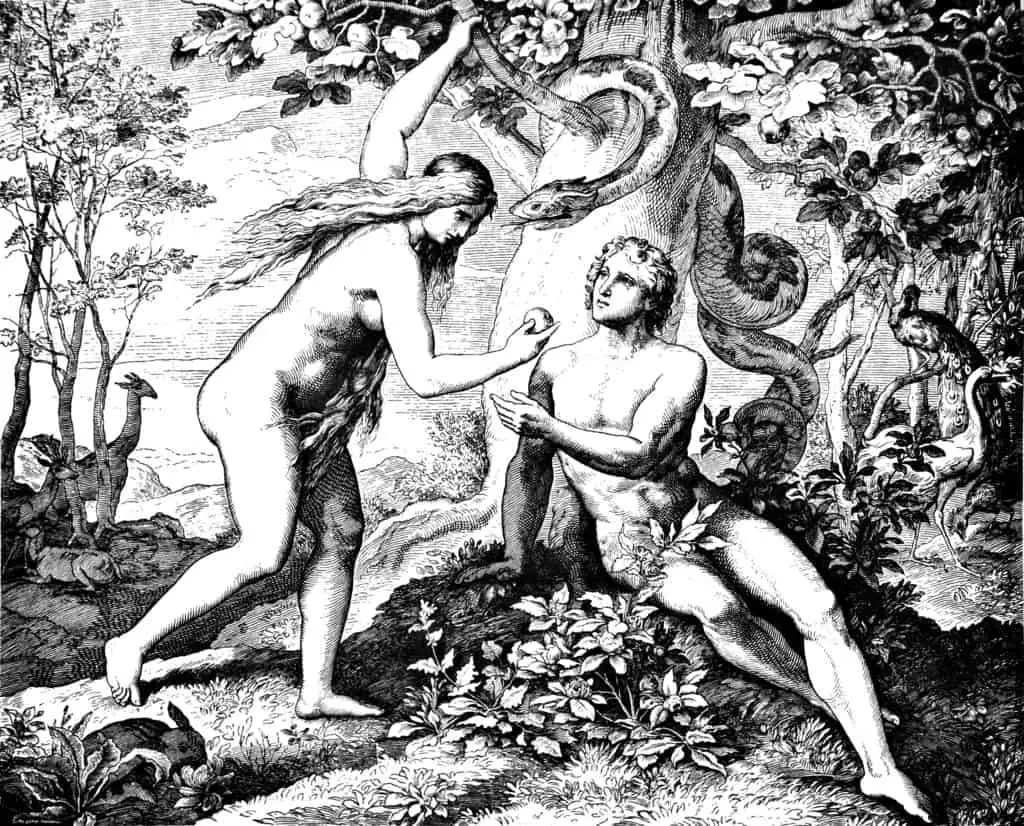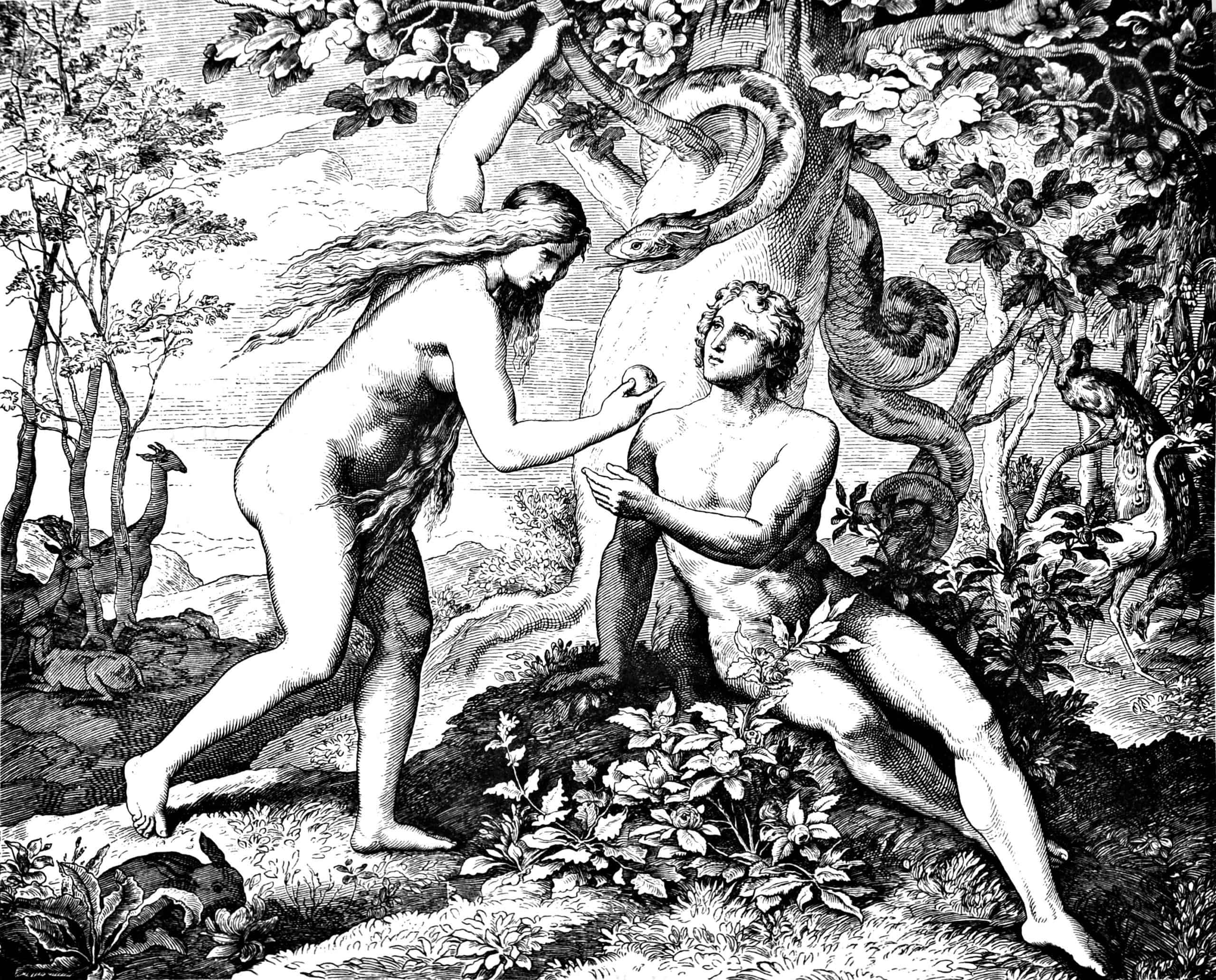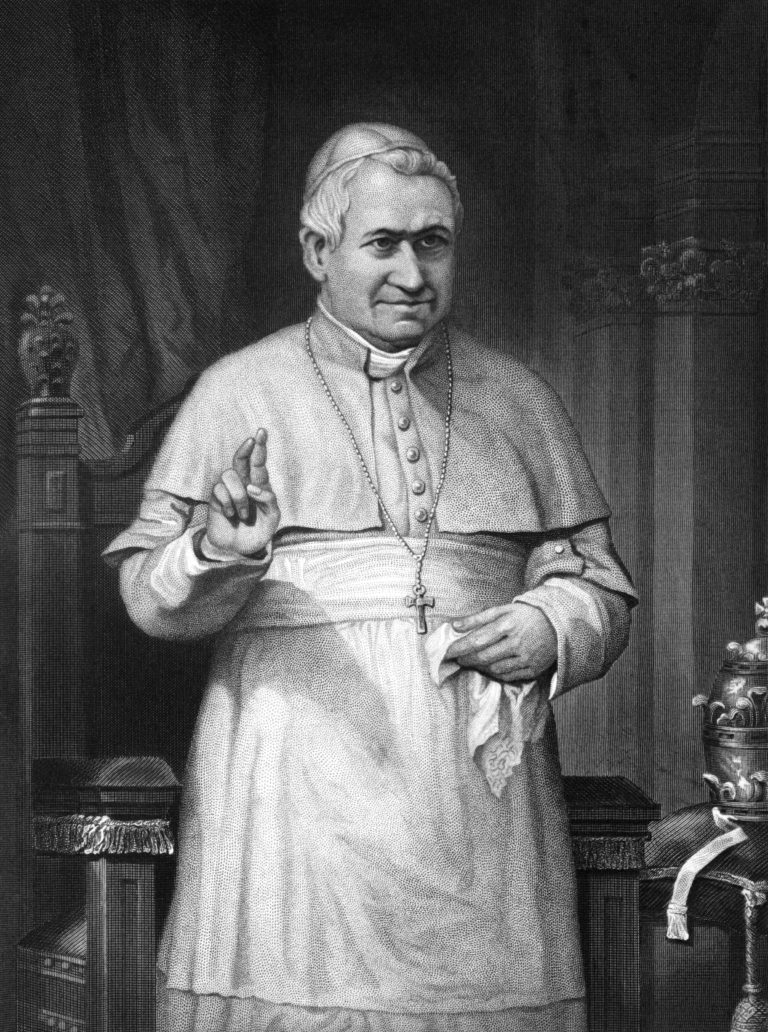What is sin and its’ Origin?
Several online dictionaries define sin as a transgression against a divine and/or a moral law and/or an offense against God and/or religion. Sin can be traced back to the our first parents, Adam and Eve.
Measuring our behaviour to a standard is part of our human nature called the Moral Law handed to humanity through the Ten Commandments. The origin of sin entered the world when Adam and Eve disobeyed a Divine directive, but the existence of sin came from when Lucifer, through his pride failed the Heavenly test and said ‘non servium’ which translates to ‘I will not serve’.
What is the Catholic definition of Sin?
Within every culture and society throughout history, humanity has always lived to a standard set by those in authority. To deviate from these norms or standards is failing to live up to these expected standards, customs and laws.
From the origin of creation there have and remain physical law that the entire world and universe is governed by for example the sun rises in the east and sets in the west; the planets revolved around the sun; and many other observable natural phenomena. The physical laws form a part of the Natural Law. These laws are measurable, observable and a direct breach of these laws, results in changes that can be seen.
On the other side of the Natural Law are the laws that govern our behaviour and direct each one of us on how we should relate to each other, the world around us and to the Divine Will. These are known as the Moral Laws and were made explicit in the Old Testament by God through Moses (Exodus 20:2-17).
Sin therefore is the deviation away from the Divine Law. The Catechism of the Catholic Church states:
“Sin is an offense against reason, truth, and right conscience; it is failure in genuine love for God and neighbor caused by a perverse attachment to certain goods. It wounds the nature of man and injures human solidarity. It has been defined as “an utterance, a deed, or a desire contrary to the eternal law.”” (Catechism of the Catholic Church, paragraph 1849).
Further, the Catholic Church emphasizes the offense against God:
“Sin is an offense against God: “Against you, you alone, have I sinned, and done that which is evil in your sight.” Sin sets itself against God’s love for us and turns our hearts away from it. Like the first sin, it is disobedience, a revolt against God through the will to become “like gods,”123 knowing and determining good and evil. Sin is thus “love of oneself even to contempt of God.” In this proud self-exaltation, sin is diametrically opposed to the obedience of Jesus, which achieves our salvation.” (Catechism of the Catholic Church, paragraph 1850).
What is the Judea-Christian understanding of Sin?
The word sin in the Old Testament denotes an external action performed by human beings for example idolatry, murder, adultery. It also concerns the internal thoughts of humans including thinking ill of someone or having undesirable desire against one’s neighbour and God.
Sin is a failure to love God and an action against reason, truth, conscience; and a failure to love one’s neighbour. Overall, sin damages the personal relationships between each other and between each one of us and God.
The word Sin in Hebrew and Greek is used in different contexts. The Hebrew word ḥāṭāʾ in the Old Testament andGreek word hamartanō in the New Testament both mean “miss the mark” meaning a breach of a contract between peoples or tribes, the violation of proper obligations toward a kinsman, the disloyalty of a servant to his master and any act of disobedience against God.
Other ways the word sin is used include:
- ʿāwôn (Hebrew) meaning “iniquity” and to the burden of “guilt” that results from it.
- pešaʿ (Hebrew), meaning willful “rebellion” against a higher authority.
- Hamartia (Greek), means a forbidden action or an inclination within man that leads to such actions, to the guilt that results from such actions, or to lawlessness in general.
- Paraptōma (Greek), meaning “trespass”.
- Parabasis (Greek), meaning “transgression”.
In the prayer that Jesus taught, The Our Father (St Matthew 6:9-13) and depending on the Bible version that you read, the ‘forgive us our offenses or transgressions or debts’ provides with a variety of meaning. In the Gospel of St Matthew 6:12 the meaning of debtors from the Greek ὀφείλημα (opheilēma) is used in a moral sense that is sin and not in a financial sense, which is present elsewhere.
From the Judeo-Christian understanding of sin, to sin is to transgress against a moral law, to offend God and rupture the relationship between God and neighbor.
Prior to looking at the origin of sin, that is where did sin come from, I want to highlight the current understanding amongst Catholics and non-Catholics on the topic of sin and the perception of sin. The research below is taken from two separate Pew Research surveys conducted in 2015 and 2016.
What does the research say about sin?
In a 2015 Pew Research on ‘Beliefs About Sin’ a number of interesting results show that the push for an individual relying on his or her conscience plays a large role into what many constitute sinful.
It is estimated that amongst U.S Catholics, 90% say they believe in the concept of sin. Indicating that there are actions or deeds that they perceive as offensive to the Creator (God).
Whilst on the surface this is reassuring, it is when you go deeper into the results that you see a different picture.
Believing in the concept of sin is one thing, however what specifically is sinful varies widely.
The table below shows the percentage of surveyed US Catholics versus US Population that consider a certain item to be sinful
| ITEM | US CATHOLICS | US POPULATION |
| Abortion | 57% | 48% |
| Homosexual Behaviour | 44% | 45% |
| Buy Luxury without giving to the poor | 41% | 35% |
| Divorce | 21% | 19% |
| Remarry after a divorce | 35% | n/a |
| Cohabitation | 33% | 36% |
| Contraception | 17% | 10% |
The understanding of sin has certainly shifted and US Catholics are generally more accepting of sinful behaviours such as Abortion, Homosexual Behaviours, Divorce, Divorce and remarriage, cohabitation and Contraception where the Catholic Church’s teaching has never change and these would be frowned upon 50 to 60 years ago. What has changed? The culture, customs, the sexual revolution, the control of the media by certain groups, the explosion of opinion and social media, education and more. But one factor that has added to these view is the understanding of the conscience.
What is a conscience?
The conscience is a person’s sense on whether a behaviour is right or wrong. Therefore the person will be moved a certain way when he or she is faced with an action or deed. The guilt that arises when a person acts contrary to his or her conscience is an example of when one makes an immoral decision. Whilst making an agreed decision with one’s conscience the person is said to have acted morally.
There is a major defect is the person’s conscience – forming their conscience. How is the person’s conscience formed? What is their understanding, knowledge and awareness of right and wrong? Who is forming their conscience? How culpable are they i.e. the degree of responsibility, are they acting our of fear or coercion or simply ignorance.
Whilst the purpose of the article is to give a sense of sin and its’ origins, the conscience is married to sin and will be topic of another article of another day.
However, it is worth highlighting a research study conducted by the Pew Research Centre in 2016
“Roughly three-quarters of U.S. Catholics (73%) say they rely “a great deal” on their own conscience when facing difficult moral problems, compared with 21% who look to the Catholic Church’s teachings, 15% who turn to the Bible and 11% who say they rely a great deal on the pope. (Pew Research Centre, April 19, 2016)
Relying on your own conscience for 73% of US Catholics is fought with danger because how well formed are their consciences? Who has formed their conscience? They must have received this formation from somewhere – was it their parents, the media, their friends, schools, etc. With only 21% seeking guidance from the Catholic Church then it is not a surprise that the concept of sin is diminished for many US Catholics.
We turn to the second part of the question on sin and that is Where did sin come from?
Where did sin come from? The Origins of Sin.
It is understood by early Church Theologians and Church teaching that God created the Angelic realm and the physical realm.
The Angelic realm are the entire choirs of Angels. By the Physical realm I mean the physical world as we see it made up of animate and inanimate objects -humans, animals, insects, plants, water, land, rocks, mineral, planets, sun, moon and the entire universe.
However the Creator God provides His creation with a test and we are under this test to determined based on our choices how worthy we are of Heaven. After all nothing is ever earned that doesn’t require some hardwork.
The Angels, according to St Thomas Aquinas, the Angelic Doctor were created outside of Heaven known as the Empyrean Heaven.
“It would seem that the angels were not created in the empyrean heaven. For the angels are incorporeal substances. Now a substance which is incorporeal is not dependent upon a body for its existence; and as a consequence, neither is it for its creation. Therefore the angels were not created in any corporeal place” (Summa Theologica).
St Augustine also states:
“that the angels were created in the upper atmosphere: therefore not in the empyrean heaven.”
This does not mean imply that there wasn’t a higher heaven.
St Thomas Aquinas goes on to say:
“The universe is made up of corporeal and spiritual creatures. Consequently spiritual creatures were so created as to bear some relationship to the corporeal creature, and to rule over every corporeal creature. Hence it was fitting for the angels to be created in the highest corporeal place, as presiding over all corporeal nature; whether it be styled the empyrean heaven, or whatever else it be called” (Summa Theologica).
Therefore the angels the like us humans had to merit or earn Heaven by choosing God [FREE CHOICE]. The angels were created in Sanctifying Grace and in Beatitude but they still had to merit the end which is beatitude.
An angel did not merit beatitude by natural movement towards God; but by the movement of charity, which comes of grace.
Unlike mankind who was not intended to secure his ultimate perfection at once, like the angel. Hence a longer way was assigned to mankind than to the angel for securing beatitude.
It is of the nature of an angel instantly to attain the perfection unto which he is ordained.
Consequently, only one meritorious act is required; which act can so far be called an interval as through it the angel is brought to beatitude.
The angels decision was in an instant as they were illuminated with the knowledge of God, whilst we are nor created in this light and must struggle from the stain of original sin which is the how sin entered into the world.
The sin of humanity through our first parents, Adam and Eve was brought upon by the rebellious angels and one of the highest ranking angels in Heaven, Lucifer.
Who is Lucifer and what was his sin?
The name Lucifer means “light-bearer” ((Latin), in Hebrew hêlēl, “shining one” and in Greek heōsphoros, “light-bearer”.
Lucifer is believed to have been from the highest ranking office of Angels being the Cherubim.
Quoting St Thomas Aquinas the great Doctor:
“Cherubim is interpreted fulness of knowledge, while Seraphim means those who are on fire, or who set on fire. Consequently Cherubim is derived from knowledge; which is compatible with mortal sin; but Seraphim is derived from the heat of charity, which is incompatible with mortal sin. Therefore the first angel who sinned is called, not a Seraph, but a Cherub.”
Derived from this hierarchical angelic choir, Lucifer had much knowledge assigned to him and believed to by a beautiful angle as he shone or bearer or light or light-bearer.
What does Scripture say about Lucifer?
We read in two main passaged and even the words of the Word made Man, the Son of God Himself who says:
“I saw Satan fall like lightning from heaven. [St Luke 10:18]
Further in Revelation we read: “Now war arose in heaven, Michael and his angels fighting against the dragon; and the dragon and his angels fought, but they were defeated and there was no longer any place for them in heaven. And the great dragon was thrown down, that ancient serpent, who is called the Devil and Satan” [Revelation 12:7–9].
How did Lucifer and the angels fall?
Humans sin through a movement towards God i.e. choosing either through ignorance or error, we call this a Mortal sin, the act of free-will. But the Angel(s) sinned, by seeking their own good, from their own free-will. They rebelled against God, the Divine will.
Hence the Sin of Pride.
Lucifer sought his own good and not of the good of God, the Divine Will.

When God illumined the angels understanding of His plans, Lucifer knowing the God would create a physical creature in God’s own image and likeness and that He would become Man and a Woman will ascend to the highest throne in Heaven. Lucifer responded to the test of obedience with the following:
“Non servium’ which translates from the Latin to
“I will not serve”.
This is the origin of sin and a third of Heaven rebelled and were thrown to Hell created for Satan and his angels.
What about the Origin of Mans first sin, we call Original Sin?
The Book Genesis illumines our mind into the works of God (Genesis 1). God created mankind in His own image and likeness (Genesis 1:27) and blessed them (Genesis 1:28). God endows the man with all the fruits of paradise (Genesis 2), but forbids them to eat of the tree of knowledge (Genesis 1:16-17).
God seeing that man should not be alone creates a helper in the woman, Eve (Genesis 2:21-24).
The entire human race would be affected by the actions of one man and one woman. The Serpent (Satan) who from his knowledge of God’s plan commenced his endeavour to destroy God’s creation for the Serpent understood what had taken place.

Adam and Eve fell into the temptation of the Serpent (Genesis 3:1-7). Upon hearing the voice of God, the man and woman hid in shame for now they were naked (Genesis 3:8-10). Upon finding the man and woman, God questions them about what had taken place, for God knows all, the man states “it is the woman you gave me and the woman blamed the serpent’ (Genesis 3:8-13). Rather than accepting their sin and begging God for forgiveness, the man and woman pointed the finger of blame.
This is the first sin of man that is called Original Sin.
Like Lucifer, mankind sinned out of pride. The pride to know, the pride to trust in his and her own wisdom.
The merciful God proceeds to hand out just punishment for their transgression but in God’s mercy, He promises a savior who will be conceived from an unblemished Woman.
In Genesis 3:15 God says:
“I will put enmities between thee and the woman, and thy seed and her seed: she shall crush thy head, and thou shalt lie in wait for her heel.
This is what is called the “protoevangelium”— the first prophetic announcement of the Messiah.
There you have an understanding of sin and the commencement of sin both in the angelic realm and the physical realm. Remember that just as God cast out the rebellious angels, He will cast out those who are obstinate in their sin. For God and sin do not mix. Make your peace with God through confession whilst you have the time.






